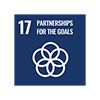Stakeholder engagement
We support transparent and constructive stakeholder engagement and consultation. Stakeholder scrutiny supports the maintenance of high standards of business conduct that is vital to our corporate culture and the long-term success of the Group.
We recognise that robust and respectful engagement with our stakeholders is essential for our industrial assets to maintain their social licence to operate. Through building constructive and transparent relationships with our stakeholders, we can strengthen our approach locally and globally and improve our operating processes and performance.
Our approach
Our stakeholders include our workforce, shareholders, debt providers, suppliers, joint venture partners, customers, governments and regulators, Indigenous Peoples, land-connected peoples, local communities, NGOs, union organisations, civil society, media and industry peers. We foster dialogues at local, national, regional, and international levels through a range of engagement activities, as well as participating in multi-stakeholder discussions.
We engage in a transparent and open manner in accordance with our Code of Conduct, aiming to build trusting, long-term relationships throughout the lifecycle of our industrial assets.
We communicate clearly and avoid using unnecessarily complex language or jargon. We seek to maintain active and transparent engagement with our stakeholders and facilitate a two-way equitable dialogue.
Throughout our engagement activities, we seek to respect all cultures and traditions in an appropriate manner.
We listen to our stakeholders and seek to address their concerns.
Stakeholder engagement at our industrial assets
Our industrial assets build relationships with local communities and decision-making authorities. They meet and engage with the communities living around our industrial assets to share information about our activities that may affect them, key risks and control measures, and to help us understand communities’ views and address any concerns raised. We adapt our approach to reflect the local operational and cultural environment, and engagement can include open-house sessions, formal engagements, face-to-face discussions, and complaints and grievances mechanisms.
Raising matters of concern
We encourage and welcome feedback. We implement processes for stakeholders to raise concerns and complaints. We record and investigate serious concerns and complaints and seek to resolve them in a timely manner.
We are committed to creating a culture where everyone feels free to speak about concerns securely and confidentially. That includes employees, contractors, directors and officers working in our offices and industrial assets, as well as third parties such as customers, suppliers or other stakeholders. For further information see Speaking openly.
We require our industrial assets to have in place local complaints and grievance processes that meet the United Nations Guiding Principles on Business and Human Rights (UNGP) effectiveness criteria. These processes encourage people to raise issues in a manner that respects the rights of the complainant. Complaints and grievance mechanisms provide effective feedback channels that encourage dialogue, provide an opportunity to identify and resolve issues, and serve as an effective mechanism to prevent situations that negatively affect stakeholders.
We require our industrial assets to investigate and record all complaints. We do not allow any form of punishment, discipline or retaliatory action against people for speaking up or cooperating with an investigation.
We provide guidance and support to our industrial assets as part of our efforts to ensure consistent good practice in complaints and grievance processes. Where people have complaints or grievances we aim, where possible, to investigate and resolve them at the local level. In line with the UNGP effectiveness criteria, our industrial assets are required to investigate and respond to complaints and grievances in a timely manner, maintain an open dialogue with relevant stakeholders, and initiate or participate in remedies to address adverse impacts. For more information, see Grievance mechanisms.
Principles we follow
-
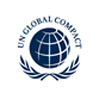 UN Global CompactVisit the website
UN Global CompactVisit the website -
 Principle 10Read more
Principle 10Read morebusinesses should work against corruption in all its forms, including extortion and bribery
-
ICMMVisit the website
-
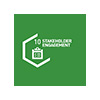
-
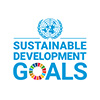 UN SD GoalsVisit the website
UN SD GoalsVisit the website -
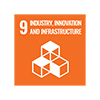
-
